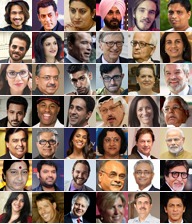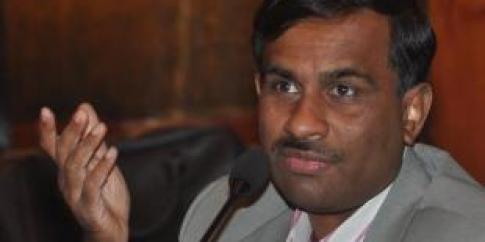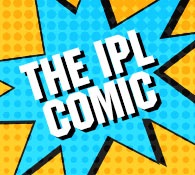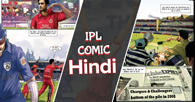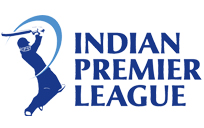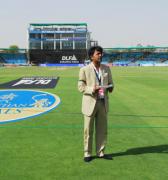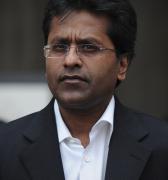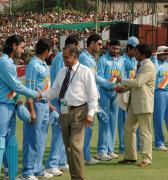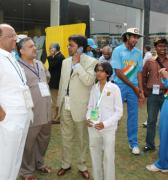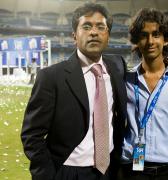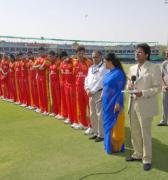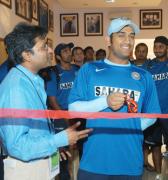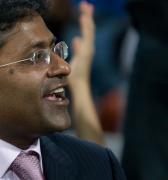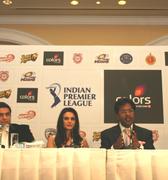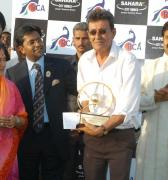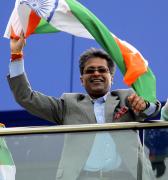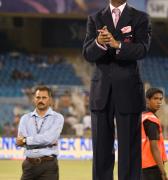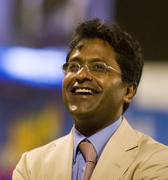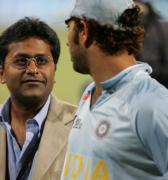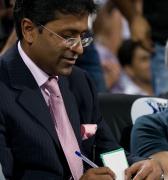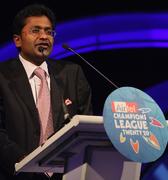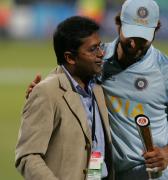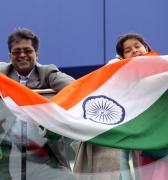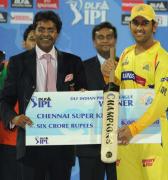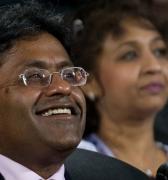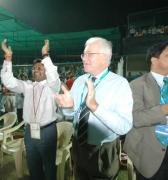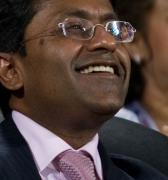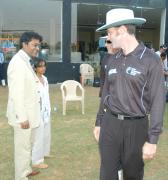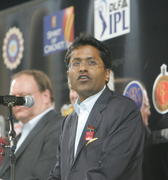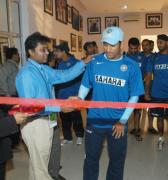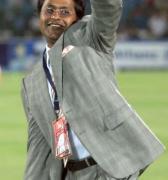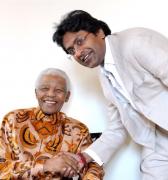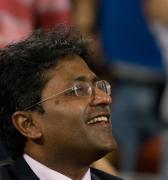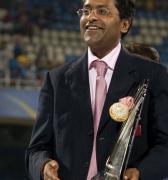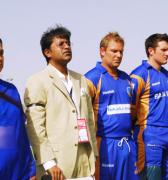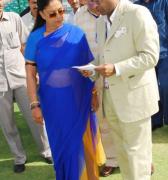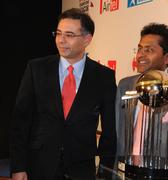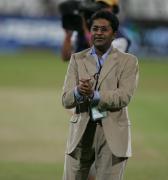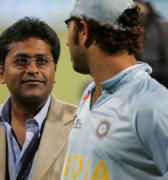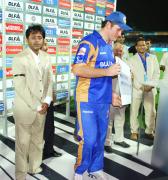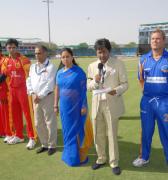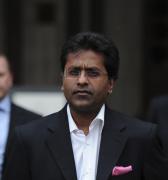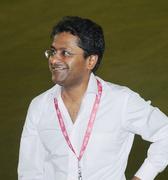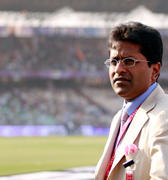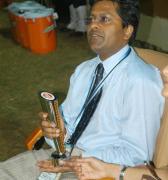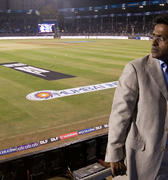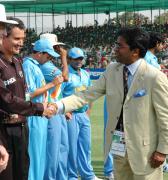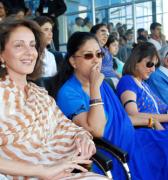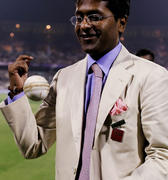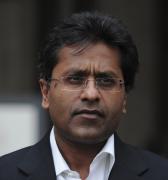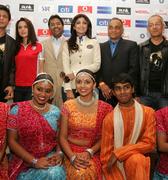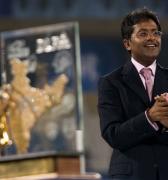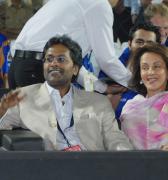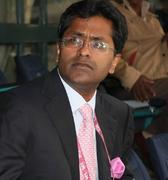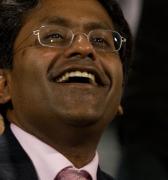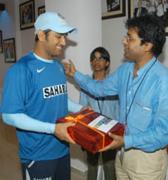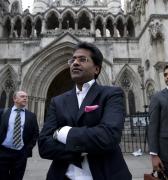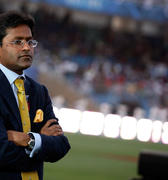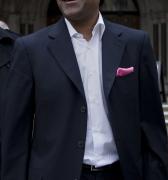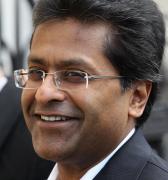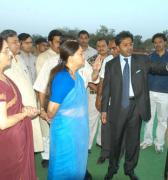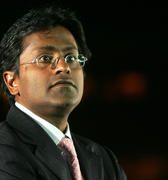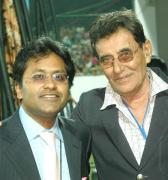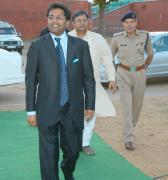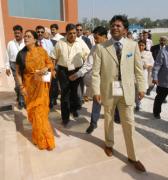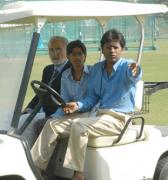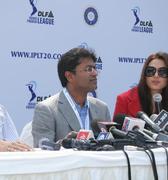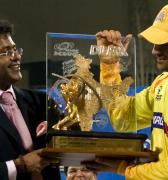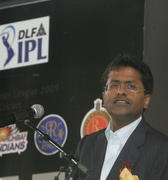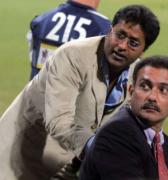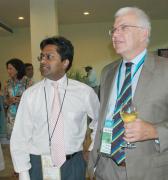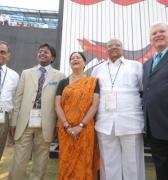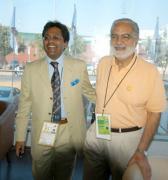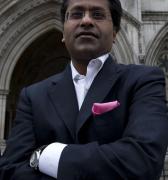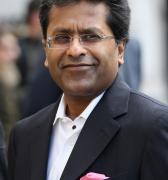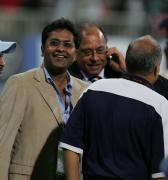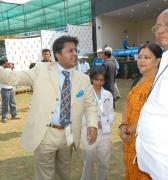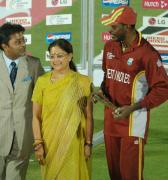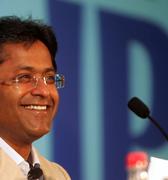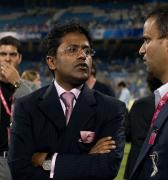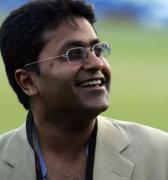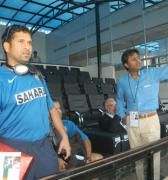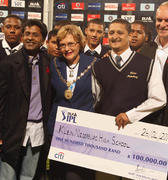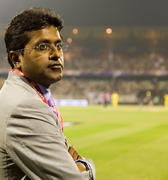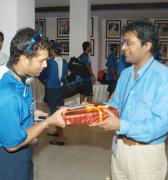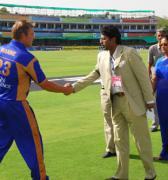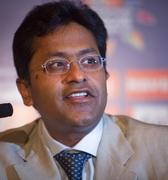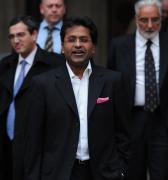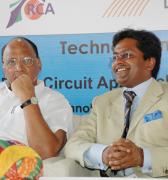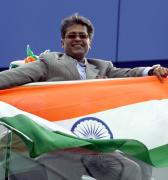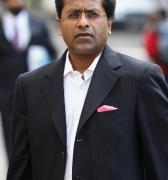CAC brief was to pick head coach: Limaye
'I don't think people understand what CoA is able to do and not able to do'
As a banker whose primary work ethics involve relationship building exercises, being pragmatic and solutionoriented, National Stock Exchange's (NSE) new CEO Vikram Limaye brought all of these on board when the Supreme Court appointed him as member of BCCI's Committee of Administrators (CoA). This weekend, he stepped down after contributing financial, governance and legal remedies to the Board on cricket and operational matters in an effort to bring trust and integrity into the system. In an exclusive interview with TOI , Limaye spoke at length on his stint.
EXCERPTS...
First there was confusion on the interview process to select the coach and now on the support staff...
Advisory committee's main task was to pick the head coach. The brief given to them was not to pick the support staff. The rest was their recommendation. Ultimately, it is the head coach who should have a say in who his support staff should be. Whether he needs permanent coaches or additional consultants for specific tours or conditions, the head coach can recommend. The head coach is well within his rights on these matters. You cannot decide arbitrarily who the head coach's team should be without the head coach's involvement in that decision.
And the whole interview process led to confusion too...
I actually feel that it has been sensationalised beyond reason because we had put a process in place which was very clearly laid out. There was a credible committee in place that was tasked with the responsibility and the outcome should be respected instead of being sensationalised. The committee said they wanted to talk to Virat and there was nothing wrong with that either. There is no reason why captain should find out who the coach is through press. There were various channels and people saying this is a farce and Virat was making the decision, which is not correct..
What is the future of the CAC?
We have asked that terms of reference be drafted for the advisory committee and they will have to know what their mandate is and what they are accountable for.
How would you sum up your stint?
I don't think people understand what CoA is able to do and not able to do. Therefore, there is a mismatch in expectations and understanding. The expectation is that CoA is completely empowered to do whatever they feel is appropriate for Indian cricket. That is not the mandate given to CoA. Mandate is to implement the reforms and supervise the management and administration of BCCI. CoA is not empowered to overrule any general body decision. That can only be done by the Supreme Court. Many of the decisions that need to be taken for implementation of reforms are general body decisions and CoA cannot unilaterally enforce them. Ultimately it is for members to vote and if they choose not to, then it is not possible for us (CoA) to get the reforms implemented.
There's a view CoA could've done more...
We put a model constitution in place two months after being appointed which was challenged in court. Following that, we went to the court seeking clarification. This was somewhere around March end or early April and the SC gave a date of July 14 to opine on these matters and clarify. So when people say, CoA should have implemented reforms, there's a mismatch in understanding. Now the court has said that it will look into these matters on September 5. So, in the interim, whatever has to be done in terms of adoption of the constitution cannot be enforced by the CoA. Either the members have to agree to do it on their own or the court has to enforce it. Beyond a certain point, the CoA cannot do much.
CoA was working on new sets of policies...
We tried to put up a constitution in place to implement, it did not work. We tried to get parts of the constitution implemented separately, it did not work. We tried to put in place a conflict policy, a fund disbursement policy, certain governance frameworks and that, too, they (members) chose not to vote on at the last SGM. The reason we are taking it to the SGM is because we were required to do so. For instance, BCCI already has a conflict management policy in place which is a general body-approved document and any change to such a document requires the approval of the general body. Therefore, any changes we suggested to the conflict policy had to again go to the general body. CoA is still enforcing a conflict policy in any new contracts that come up for renewal, such as Rahul Dravid's contract.
Can you please explain in detail how Dravid's new contract was worked out?
In the old framework, Dravid had a 10-month contract and the remaining two months, he could work with the IPL. The new conflict policy does not permit national duty and IPL duty to co-exist. Therefore when Dravid's contract came up for renewal, we said we will only renew it in a manner that it is compliant with the policy. We cannot be seen approving contracts that are in violation of what the SC has asked us to implement. Therefore we clearly told Rahul that the contract will be renewed provided you are willing to do 12 months of national duty and there's no IPL conflict.
Was ICC matter the CoA's brief?
When we got appointed, the immediate burning issue was ICC and there were negotiations to be done on the finance and governance structures. I was asked to go and we had all of three days to understand what the issues were before we could have a meaningful dialogue with ICC and member boards. We asked ICC to defer but we were voted down. Please remember that till the end of March, there was nobody in BCCI to have conversations with, until SC ruled on office-bearers' cooling off and tenure clause. So the onus was on us because if we didn't do anything and did not engage in conversations with member boards, it would have been irresponsible on our part. What if we suddenly turned up at the ICC in April with no discussions with no middle-ground to work on. Mistrust between ICC and BCCI was very evident, in terms of how the member countries say they have been treated.
BCCI did lose money...
From a finance perspective, the amount was way too skewed in India's favour. We detailed out these aspects in our letter to the ICC in February. All that BCCI is set to lose now is US$160m relative to the earlier number that was agreed. From that earlier number, you haven't even got one dollar, so you can benchmark against that model. Earlier to that, everybody had an equitable share. In this present model, even if BCCI is losing Rs 120 to 130 crore a year, they can earn it through three or four bilateral games because media rights gets them almost Rs 43 crore per match. BCCI can easily make up for that.
But BCCI commands that money from the broadcaster because of the power it commands on the global stage...
I am not disagreeing. The entire world appreciates and understands BCCI brings in un-proportionate weight but is it worth jeopardising relationship with the entire world? Is it a battle worth fighting?
What was ICC's logic in offering US$290m?
That I don't know. These were all hypothetical numbers. But let me say this, all that was a negotiation. Point is you didn't end up at 290. You ended up at 405. I don't know why Shashank Manohar started at 290. You will have to ask him. But there's no math behind 405 either.
Did CoA face difficulties in conducting IPL?
There were various forces at work trying to derail the IPL. That is factually correct. I have heard it from potential bidders too who were approached and asked not to bid. It was important to make sure a property like IPL doesn't suffer, all credit to those who are in charge of the league who made it happen.
What has been decided about the NCA?
CoA has already agreed that there needs to be a full-time director at the NCA, the advertisements for which should go out anytime soon.
As a banker whose primary work ethics involve relationship building exercises, being pragmatic and solutionoriented, National Stock Exchange's (NSE) new CEO Vikram Limaye brought all of these on board when the Supreme Court appointed him as member of BCCI's Committee of Administrators (CoA). This weekend, he stepped down after contributing financial, governance and legal remedies to the Board on cricket and operational matters in an effort to bring trust and integrity into the system. In an exclusive interview with TOI , Limaye spoke at length on his stint.
EXCERPTS...
First there was confusion on the interview process to select the coach and now on the support staff...
Advisory committee's main task was to pick the head coach. The brief given to them was not to pick the support staff. The rest was their recommendation. Ultimately, it is the head coach who should have a say in who his support staff should be. Whether he needs permanent coaches or additional consultants for specific tours or conditions, the head coach can recommend. The head coach is well within his rights on these matters. You cannot decide arbitrarily who the head coach's team should be without the head coach's involvement in that decision.
And the whole interview process led to confusion too...
I actually feel that it has been sensationalised beyond reason because we had put a process in place which was very clearly laid out. There was a credible committee in place that was tasked with the responsibility and the outcome should be respected instead of being sensationalised. The committee said they wanted to talk to Virat and there was nothing wrong with that either. There is no reason why captain should find out who the coach is through press. There were various channels and people saying this is a farce and Virat was making the decision, which is not correct..
What is the future of the CAC?
We have asked that terms of reference be drafted for the advisory committee and they will have to know what their mandate is and what they are accountable for.
How would you sum up your stint?
I don't think people understand what CoA is able to do and not able to do. Therefore, there is a mismatch in expectations and understanding. The expectation is that CoA is completely empowered to do whatever they feel is appropriate for Indian cricket. That is not the mandate given to CoA. Mandate is to implement the reforms and supervise the management and administration of BCCI. CoA is not empowered to overrule any general body decision. That can only be done by the Supreme Court. Many of the decisions that need to be taken for implementation of reforms are general body decisions and CoA cannot unilaterally enforce them. Ultimately it is for members to vote and if they choose not to, then it is not possible for us (CoA) to get the reforms implemented.
There's a view CoA could've done more...
We put a model constitution in place two months after being appointed which was challenged in court. Following that, we went to the court seeking clarification. This was somewhere around March end or early April and the SC gave a date of July 14 to opine on these matters and clarify. So when people say, CoA should have implemented reforms, there's a mismatch in understanding. Now the court has said that it will look into these matters on September 5. So, in the interim, whatever has to be done in terms of adoption of the constitution cannot be enforced by the CoA. Either the members have to agree to do it on their own or the court has to enforce it. Beyond a certain point, the CoA cannot do much.
CoA was working on new sets of policies..
We tried to put up a constitution in place to implement, it did not work. We tried to get parts of the constitution implemented separately, it did not work. We tried to put in place a conflict policy, a fund disbursement policy, certain governance frameworks and that, too, they (members) chose not to vote on at the last SGM. The reason we are taking it to the SGM is because we were required to do so. For instance, BCCI already has a conflict management policy in place which is a general body-approved document and any change to such a document requires the approval of the general body. Therefore, any changes we suggested to the conflict policy had to again go to the general body. CoA is still enforcing a conflict policy in any new contracts that come up for renewal, such as Rahul Dravid's contract.
Can you please explain in detail how Dravid's new contract was worked out?
In the old framework, Dravid had a 10-month contract and the remaining two months, he could work with the IPL. The new conflict policy does not permit national duty and IPL duty to co-exist. Therefore when Dravid's contract came up for renewal, we said we will only renew it in a manner that it is compliant with the policy. We cannot be seen approving contracts that are in violation of what the SC has asked us to implement. Therefore we clearly told Rahul that the contract will be renewed provided you are willing to do 12 months of national duty and there's no IPL conflict.
Was ICC matter the CoA's brief?
When we got appointed, the immediate burning issue was ICC and there were negotiations to be done on the finance and governance structures. I was asked to go and we had all of three days to understand what the issues were before we could have a meaningful dialogue with ICC and member boards. We asked ICC to defer but we were voted down. Please remember that till the end of March, there was nobody in BCCI to have conversations with, until SC ruled on office-bearers' cooling off and tenure clause. So the onus was on us because if we didn't do anything and did not engage in conversations with member boards, it would have been irresponsible on our part. What if we suddenly turned up at the ICC in April with no discussions with no middle-ground to work on. Mistrust between ICC and BCCI was very evident, in terms of how the member countries say they have been treated.
BCCI did lose money...
From a finance perspective, the amount was way too skewed in India's favour. We detailed out these aspects in our letter to the ICC in February. All that BCCI is set to lose now is US$160m relative to the earlier number that was agreed. From that earlier number, you haven't even got one dollar, so you can benchmark against that model. Earlier to that, everybody had an equitable share. In this present model, even if BCCI is losing Rs 120 to 130 crore a year, they can earn it through three or four bilateral games because media rights gets them almost Rs 43 crore per match. BCCI can easily make up for that.
But BCCI commands that money from the broadcaster because of the power it commands on the global stage...
I am not disagreeing. The entire world appreciates and understands BCCI brings in un-proportionate weight but is it worth jeopardising relationship with the entire world? Is it a battle worth fighting?What was ICC's logic in offering US$290m?That I don't know. These were all hypothetical numbers. But let me say this, all that was a negotiation. Point is you didn't end up at 290. You ended up at 405. I don't know why Shashank Manohar started at 290. You will have to ask him. But there's no math behind 405 either.
Did CoA face difficulties in conducting IPL?There were various forces at work trying to derail the IPL. That is factually correct. I have heard it from potential bidders too who were approached and asked not to bid. It was important to make sure a property like IPL doesn't suffer, all credit to those who are in charge of the league who made it happen.
What has been decided about the NCA?
CoA has already agreed that there needs to be a full-time director at the NCA, the advertisements for which should go out anytime soon.
(Courtesy: The Times of India)




